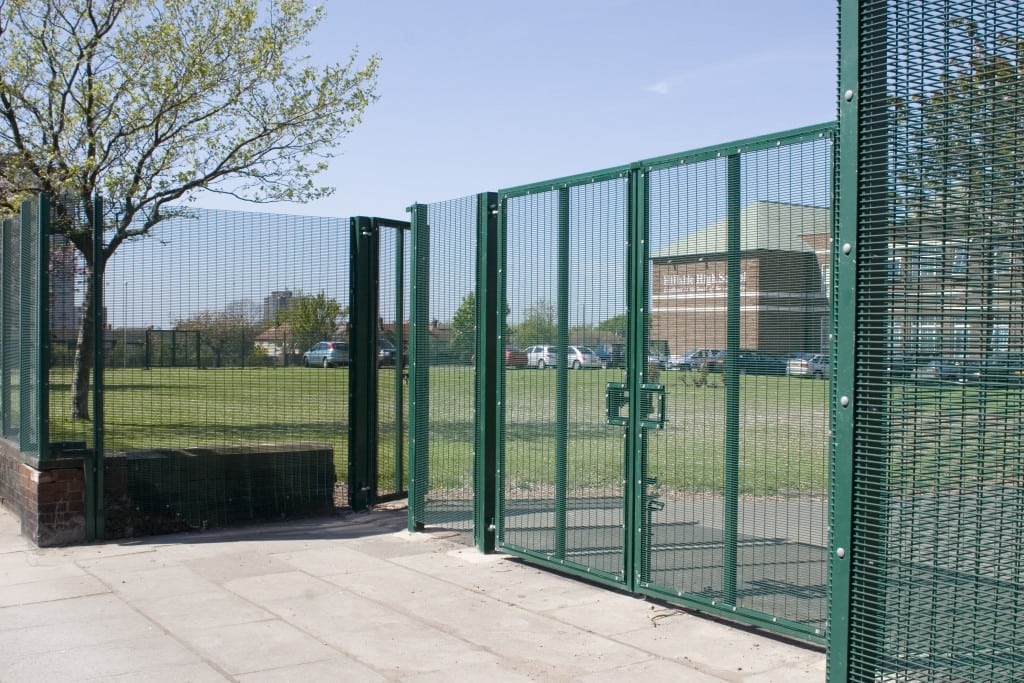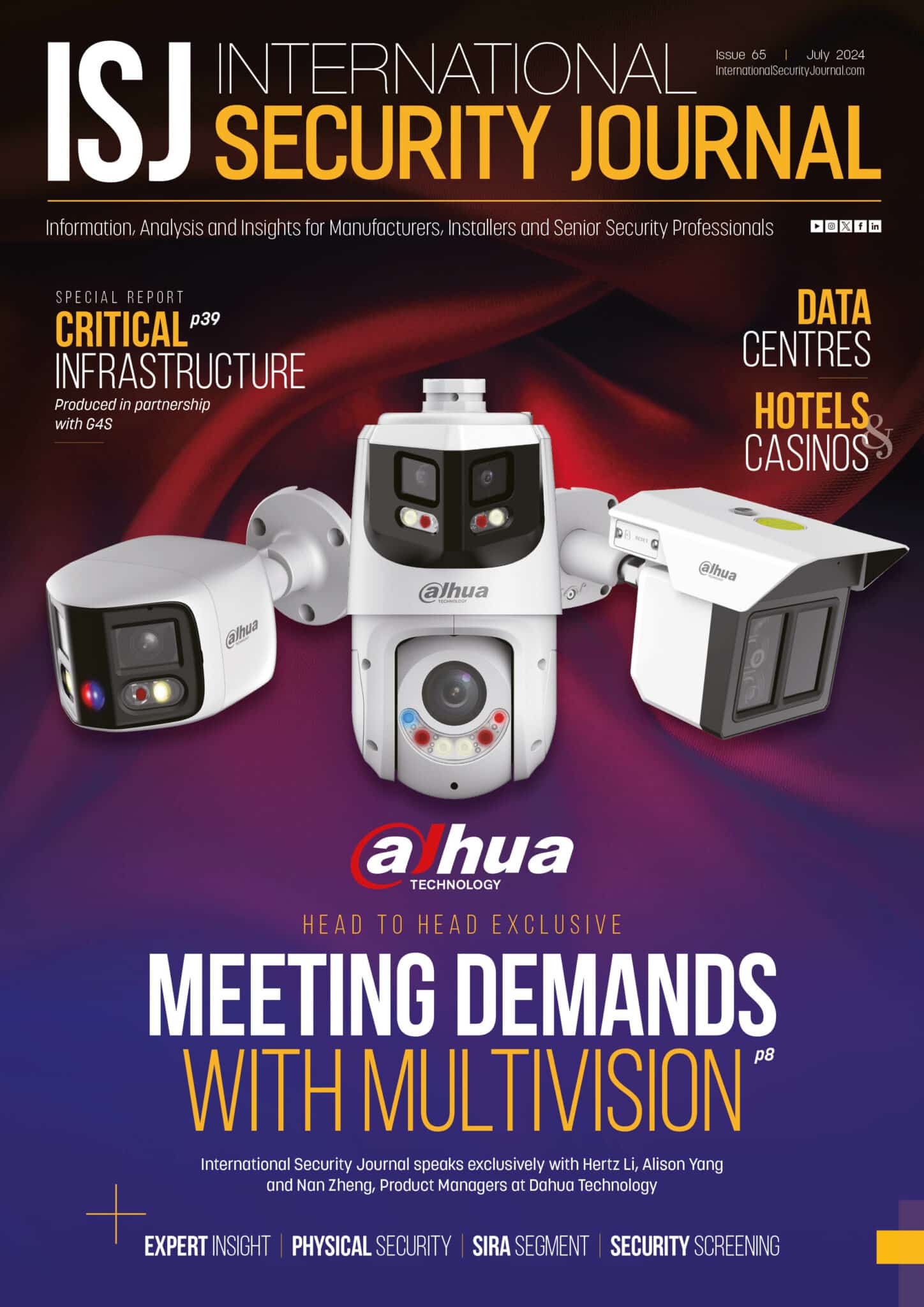Perimeter solutions tailored to customer requirements


James Thorpe
Share this content
Maintaining a strong focus on the fundamentals is crucial in the realm of perimeter protection, says Emmanuel Rigaux, CEO and David Owen, Managing Director for the UK, Heras.
ISJ June Edition Exclusive
In the world of perimeter protection, Heras is a brand synonymous with reliability and expertise. Europe’s leading end-to-end supplier of permanent and mobile perimeter protection solutions, the company operates in over 24 countries, employs over 1,100 highly skilled experts and is renowned for its reliability and commitment to creating secure environments.
In this exclusive interview with the company’s CEO, Emmanuel Rigaux and Managing Director for the UK, David Owen, International Security Journal had the opportunity to find out more about the company’s plans, its product portfolio and the importance of providing robust, reliable solutions to meet a range of requirements.
Focus, ambition, growth
Across the entire business, the Heras team works towards the same goal – to be at the forefront of perimeter protection. Though the company’s products speak for themselves, both Rigaux and Owen explained that being seen as a modern, leading supplier is not just purely about being a provider, but also a responsible leader.
“At Heras, we follow a roadmap. A key part of this is our ambition to be the Environmental, Social & Governance (ESG) leader within our industry,” said Rigaux. “We are taking a lot of initiatives to achieve this, having appointed a new ESG Manager for the Group, to encourage actions regarding this in the coming years.
Owen elaborated on this: “Our focus on ESG is customer driven, but it is also, fundamentally, morally driven. As a culture as well as an industry, we need to do more to be morally responsible and make the right decisions to ensure that Heras has a sustainable future. Companies that do not adapt to this are going to be left behind.”
Being left behind is a frightening proposition for any business. As ESG continues to become a key consideration for prospective customers, partners and investors – with recent news showing that corporate failings can have major implications for share prices and business continuity – this is one factor that Heras is investing in to protect people and the environment. By establishing itself as a responsible leader, Heras can continue to unlock future growth across each arm of the business.
“We see growth on two fronts,” Rigaux continued. “We have two very different business offerings – mobile solutions and permanent solutions. We are seeing growth in the mobile side of the business as a result of the events sector, something very prominent in Europe. This means we are ideally positioned for the 2024 Olympics in Paris.
“On the permanent solutions side of the business, each country has very different models and specifications, making it critical that we look in-depth at each country’s nuances and how we can adapt our offerings.
“We want to cater for both ends of the market and we need to provide products that are very reliable, such as our Delta, many of which have been operational for years across projects. Equally, we need to provide solutions for high end contracts, as this is where we see a lot of growth.”
Achieving certification, building trust
There are two simple types of marking that Rigaux and Owen consider to be critical when customers are specifying the right perimeter protection solution – the UKCA marking (UK Conformity Assessed) and the European CE marking (Conformité Européenne; In accordance with European directives).
Though the company prides itself on striving to operate at the highest level of requirements, not all European requirements, in terms of product, have been translated to local legislation. Therefore, Heras always ensures that what it offers is always at the highest level – though this is sometimes more costly in the long term, it is the best approach.
“Certification is a guaranteed way of giving customers peace of mind that the solutions you provide are meeting certain quality thresholds,” elaborated Owen. “Looking at demarcation fencing, for instance, there are different levels of what people see as acceptable.
“There are solutions at the cheaper end of the market, which we are not a part of, and then there is the mid-range right the way up to the higher end which is where we see ourselves. Certification gives customers the ability to compare solutions from manufacturers and see the minimum threshold reached.”
For each and every project or region, there is always going to be some nuances which are worth understanding. “That is why we tells our customers, ‘we are the experts in perimeter protection, so tell us what your problem is and we can work with you, adapt where necessary, and give you the most suitable solution,” commented Owen.
“Nine times out of ten, we get a bill of quantities from a sub-contractor or someone within the project management team. From there, we can get on-site and review the submission before asking questions such as: ‘Have you thought about the blind spot over there? Have you thought about how you are going to ensure access over there?’ This is where we can really apply our experience to ensure we provide a suitable solution.
“A great example of this is a project we worked on where a solar farm had been providing power to a critical national infrastructure site. When the contractor put the farm up, they put some basic fencing up and said, ‘yep, that’s secure’. However, people were managing to break in and go to great lengths to take cabling away. Now, they are looking towards prison-graded fencing to solve this problem. Where there is the dead man zone in the middle, though this in negotiation, they are now considering whether or not they need something even more robust.
“Another example of this is a food manufacturer Heras works with. Because of the threats of domestic terrorism as well as protestors looking to disrupt whatever the production there may be, they have had to significantly step up their level of protection. All these different industries have there own risks and challenges. It is all about protecting what matters to them.”
“It is all about adapting”
Though there is no doubt that the company is a premier provider of perimeter solutions, Heras is always looking for ways to improve its existing portfolio – even those products that were launched 30 years ago, such as the Delta sliding gate.
“We are working with leading technology companies from all over Europe to not only make the products extremely robust, but capable of being connected and activated from a distance,” said Rigaux. “The Delta is our only modular solution, which is a key advantage for many of our clients.
“I think we see the growth of our portfolio in our service offering.
“This needs to be very well tailored to our customer needs. We have built up, in each country, a specific technical team with strong knowhow and planning systems. We can now offer a fully integrated package, all the way from the early design stage process, all the way up to the long term service of the solution.”
Electronic surveillance is also a key consideration for Heras, an area where it has formed key partnerships recently. Rigaux explained that the size of the servicing component within the sector is continuing to grow and it is an area which will continue to do so in the coming years.
“We have some great products across our portfolio, not just on the physical side of things, but also our PIDS (Perimeter Intrusion Detection Systems). We did in fact end-of-life some of these products, but due to the outcry within the market, we bought them back as many people saw them as long standing solutions.
“It is all about adapting to what customers are asking for. Another great product we offer is Connect & Access – this provides us with the visibility to see what is happening with all the entrance control solutions to help us monitor system health, use, damages, fault finding. This can be controlled remotely and it has a lot of adaptations for remote sites and different industries.
“In fact, we were recently talking about it being an alternative to ANPR in some environments. In agriculture, for example, where tractors may be entering a site covered in mud, number plate recognition is not going to work that well. With this solution, however, it can be as simple as providing a phone number which can be called or potentially adding a passcode, depending on the requirement, to limit the number of people who can access it. It is a very simple tool, but it has so many applications that improve oversight and can be adapted to multiple requirements.”
Expansion and leadership
The Heras brand is so strong in many European countries, that the company does often get requests to go above and beyond what it currently does. Rigaux added that the company is always open to exploring new market segments and that it is currently involved in a pilot project in France focussed on residential gates, alongside one of its partners.
“In perimeter protection, it is important to never forget the basics. You need to make sure that the foundations are solid and that your team of installers are extremely well qualified. It is a people business, so first and foremost, you need to ensure that you are investing from the ground-up.”
Owen concluded: “You are only as good as the people installing your solutions. This is the factor that can cause security risks. Moreover, if a product is not installed correctly, it can actually cause various health and safety issues. A lot of our manufacturing comes out of the main plant in the Netherlands, and though we try and keep our processes as standardised as possible, we do have elements of late stage customisation.
“So, for each market, it is ever so slightly different – in the Netherlands, it is notoriously flat, whereas in the UK, there are other factors to consider when it comes to landscape and terrain! Having strong leadership within each region is critical.”

